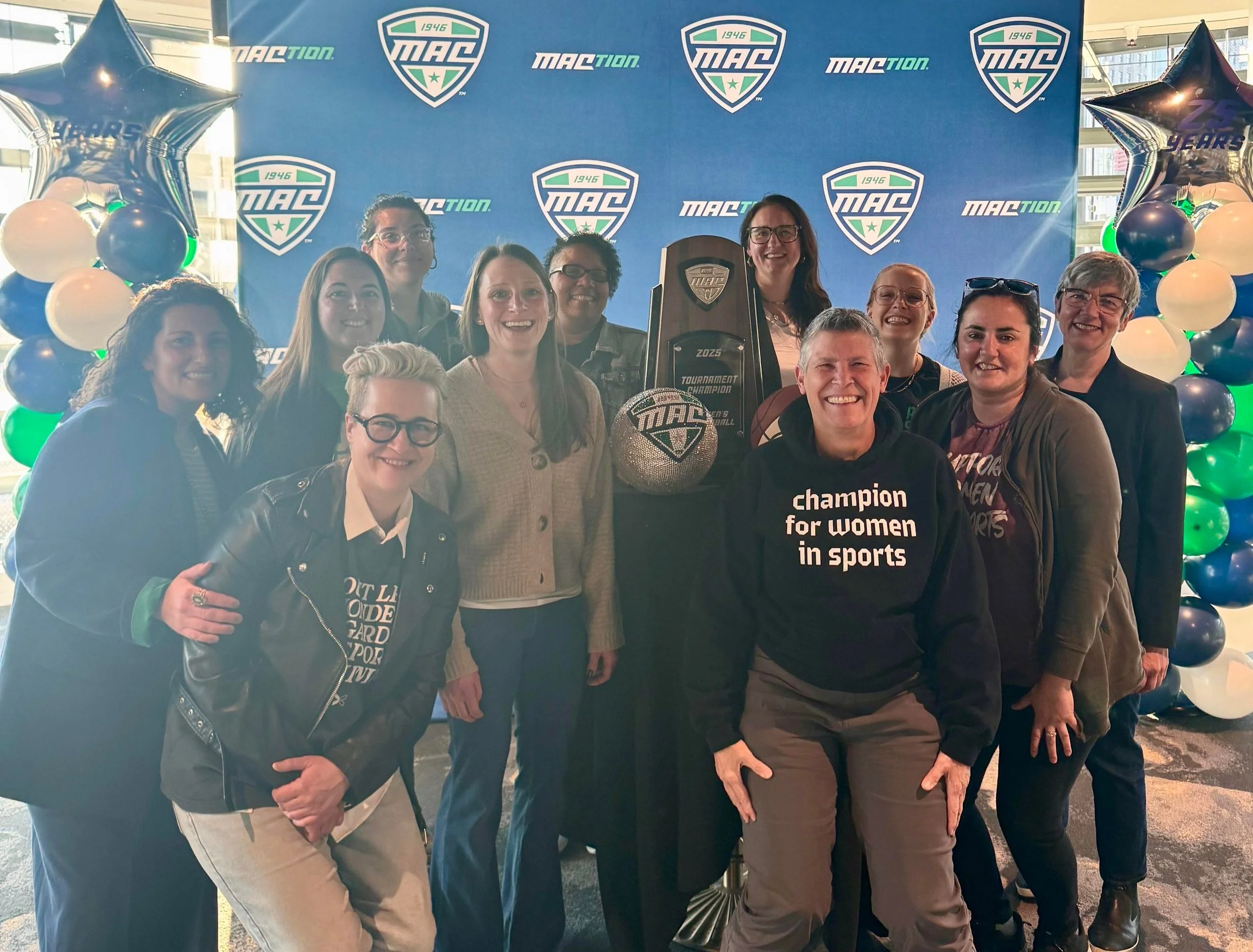What is the Play Gap?
What is the play gap? The “play gap” refers to the systemic barriers that make it more difficult for certain people to play or participate in sports. This includes the disparity in provided opportunities, resources, and visibility for underrepresented groups, such as women, the LGBTQIA community, the BIPOC community, vulnerable socioeconomic areas, non-traditional sports, adult recreational sports and many others.
We also see the play gap as the time during which many of us transition in or out of playing sports for a variety of reasons. Injuries, pregnancy, caregiving, career advancement, relocation and other life events can force us to pause our sports participation. Most commonly, the gap widens as formal support structures and opportunities within high school and collegiate athletics end, making it difficult to find a sports community that fits our adult needs.
Most of us won't become professional athletes, nor is that our goal. But as we get older, we need to keep playing sports for the physical, mental and social aspects. For everyday adult women, there are a lot of ways to stay involved in sports, but not a lot of awareness surrounding them or platforms to lift them up.
Traditional media, professional teams and leagues, and corporate sponsors have historically acted more as one-time supporters, rather than active, ongoing partners. Some see women in sports as solely a charitable endeavor, not as an investment or a valuable asset. We and other women’s sports organizations have firsthand experiences where these entities reach out when they seek a ‘hot take’ on an issue or want a sound bite to fill out a story, or when the Pride game or Women's History Month event comes around each season. That is, if they contact us at all. While these conversations can be a good starting point, they require ongoing dialog to foster trust and a long-lasting, mutually-beneficial partnership.
The marketing strategies for these mainstream platforms tend to include the same news stories, theme nights, billboards, and giveaways, which can feel performative and insensitive to those who could benefit from practical assistance. For example, a thousand dollars could go a long way for a recreational women’s team, and yet we see organizations spending these funds on items like bobbleheads, wristbands that end up discarded, and one size fits all t-shirts.
The companies with the power and money to elevate women in sports have yet to fully tap into our potential. Beyond the economic prospects, women’s sports provide fresh news content, critical expertise and a direct line to their target audience in the female fanbase.
Representatives of Play Gap at the Mid-American Conference (MAC) Wednesday for Women event on March 12, 2025.
Those of us that keep playing, coaching, and leading recreational sports, we make up the bulk of women in athletics. This "sporty majority" encompasses the women practicing late at night, the volunteer coaches, the local refs and umpires, the season ticket holders, and the moms buying sports merchandise and spending countless hours on registration and paperwork for their kids.
There are millions of these women around the country and countless more who want to be involved in sports in some capacity but don't know how or where to turn. Current society doesn't prioritize or celebrate these opportunities. We do. That's why we exist.
Play Gap was uniquely created to bridge those gaps in resources and awareness and advocate for greater safety, accessibility, equity, and inclusion in sport.
We are a group of sports experts in different fields who act as a resource and sounding board. We understand the challenges faced by adult women and can offer experienced insights and connections for existing athletic organizations, as well as individual women looking to find their sports community. Whatever your age. whatever your skill level, whether you want to play, coach, volunteer or watch women's sports.
While there are and will continue to be societal barriers and gaps in sports for adult women and other marginalized groups, you're not alone in tackling them.


